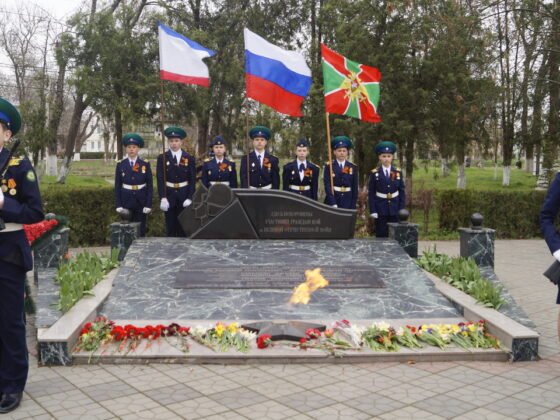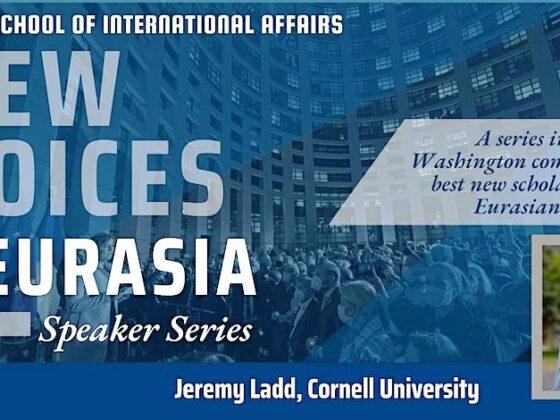(PONARS Eurasia Commentary) Experts have been actively discussing the Russian domestic factors that could influence the course of the war. Considering the country’s territorial size and diversity, the stability of center-regional relations is, without a doubt, a crucial consideration. Could the weakening of these relations become a limiting factor for the Putin administration and its willingness to wage war? Certainly, Russia’s internal political and economic situation largely depends on the strength and throughput of center-regional relations, which, in turn, affords the Kremlin capacity for foreign projects, confrontations, and combat. Russia has eighty-three governors (губернатор and глава региона) with fairly strong and independent powers as constitutional Federal Subjects, at least on paper. If Moscow begins to lose political and economic control over the regions, its ability to continue the war will be limited—far more than current or new Western sanctions might.
In this regard, our expectations are rather pessimistic. The crucial aspect of central-regional relations today is that regional governors are essential and inseparable components of Putin’s personalized rule. He has established a system of loyalty where incumbent governors rely heavily on Putin for their political survival. Lacking their own legitimacy, governors tend to follow Moscow’s directives, thus maintaining the stability of the existing regime.
Perhaps most significantly, without competitive elections, incumbent governors have little incentive to advocate for greater autonomy or prioritize their regions’ interests over those of the central government. Most incumbents do not face the same pressure to address local issues or respond to regional demands as they would in a system with competitive elections. Instead, their primary objective is maintaining loyalty to Putin and his regime, which is crucial for their political survival and prospects.
The absence of competitive elections and centralized control over regional politics minimize the risk of regional challengers and opposition movements gaining traction. There is limited space for alternative political forces to emerge and challenge the status quo in the regions. Let us recall Yevgeny Savchenko, who was the exceedingly long-time governor of Belgorod from 1993 to 2020.
Another problem is that horizontal ties of communication and (political) cooperation between governors are virtually non-existent. Each governor interacts with Moscow individually. The Presidential Administration diligently minimizes conditions for horizontal coordination between regional heads—a standard tactic employed by authoritarian regimes to prevent coordination between opposition groups and politicians. This coordination is further impeded by the country’s often vast distances between regional centers—Southern, Volga, Northern, Far Eastern, West Siberian, North Caucasus, Ural, East Siberian, Central, Northwestern, and Kaliningrad.
Under the current conditions, any individual deviation from official lines is tantamount to political suicide. The governors have had no choice but to support the war. Indeed, the war has been publicly supported by regional authorities in all Russian regions without exception. However, the degree and specific forms of war support among regional executives vary across Russia.
Shades of Support
Among the most proactive supporters and beneficiaries of the war is the governor of St. Petersburg, Alexander Beglov. In early 2022, according to expert assessments, he was very close to resigning. He had sharp conflicts with local elites, and his policies were constantly criticized in the media. However, everything changed after February 24, 2022. Beglov began to actively support Russia’s invasion and delivered regular public speeches about the “sacred war” against Ukrainian “Nazis” and “Fascists.” Last summer, he loudly proposed paying for the restoration of Mariupol, a city that came to symbolize the war, from the St. Petersburg budget. Another enthusiastic supporter is the governor of Khabarovsk Kray, Mikhail Degtyarev, who claimed that he would have volunteered for the special operation in Ukraine if it were not for his official responsibilities.
On the other side, a group of governors has generally refrained from commenting on the war. At least they have preferred not to discuss it on social media—the weathervane of views and allegiances. For example, the governor of Sverdlovsk, Evgeny Kuivashev, did not make any supportive posts on VKontakte or Telegram for the “special operation,” outraging national television host Vladimir Soloviev. Kuivashev has not expressed condolences to the families of deceased soldiers, reported on his trips to Donbas, or thanked regional residents for collecting aid for refugees.
Domestic Lines in the Sand
Despite differences in the behavior of governors, not one of them would cross the threshold of the Presidential Administration doubting their loyalty. Each governor has a keen sense of where this threshold lies. Even approaching the threshold could be fatal. Unless they develop critical mass or a new post-Putin system begins, the governors will not oppose or betray Moscow. Maintaining their position, being elected or appointed, depends on it. As Bueno de Mesquita and co-authors noted in The Logic of Political Survival:
"The incentive to defect from the incumbent to a challenger depends on the prospects of being included in the challenger’s winning coalition if he should replace the incumbent. In political systems characterized by small winning coalitions and large selectorates—as is common in many rigged-election autocracies— supporters of the leader are particularly loyal because the risk and cost of exclusion if the challenger comes to power are high."
Conclusion
We see two broad feasible alternatives for the system to change in Russia. The first is that another undemocratic leader replaces Putin. The second is a sequence of reforms leading to the democratization and liberalization of the country. For incumbent governors, both alternatives reduce their chances of remaining in office. In other words, any systemic alterations will make it worse for current governors than the current situation, thus preserving the status quo. A new undemocratic leader would undoubtedly appoint new loyalists to the regions. In the case of an awakening of genuine democratization, there would be a revival of competitive politics, and governors would have to go through competitive elections, reducing their chances of retaining their positions while exacerbating elite divisions.
The Russian authoritarian model of center-regional relations serves the interest of Moscow and, no less important, Russian governors. Neither the pandemic nor the war created incentives for the model to be reformed; thus, our expectations are rather pessimistic on the whole. It is still unreasonable that governors might break away from Putin and lead to the transformation of the system, as any scenario of change carries threats and risks for them personally.
Irina Busygina is Visiting Scholar at the Davis Center for Russian and Eurasian studies at Harvard University.
Mikhail Filippov is Professor of Political Science at Binghamton University.
Image credit/license: Touring the Leningrad Victory Exhibition in January 2023
with Northwestern Presidential Plenipotentiary Envoy Alexander Gutsan
and St. Petersburg Governor Alexander Beglov.











